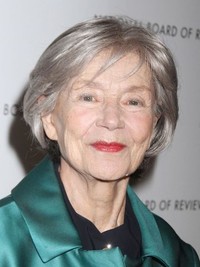Emmanuelle Riva

A greatly respected figure in French and European film during the 1950s and 1960s, Emmanuelle Riva was celebrated for her bravura performances in such landmark arthouse pictures as "Hiroshima Mon Amour" (1959), "Léon Morin, Priest" (1960), "Three Colors: Blue" (1992) and 2012's "Amour," which capped an extraordinary career in international features. Riva rose to fame as a nameless French woman whose tragic past was juxtaposed with that of her Japanese lover in "Hiroshima," which established her as a formidable participant in the French New Wave. She tackled challenging projects throughout the 1960s, including Gillo Pontecorvo's Holocaust drama "Kapò" (1960) and Thérèse Desqueyroux" (1962), which earned her a Best Actress award at the Cannes Film Festival. Riva's career cooled in the 1970s and 1980s, though she remained active in French film and television. In 2012, she emerged from semi-retirement to join another European film star of the 1960s, Jean-Louis Trintignant, in Michael Haneke's "Amour," a moving drama about an elderly couple dealing with illness and change. The film's success at Cannes shed long-overdue focus on Riva's status as one of Europe's most acclaimed actresses. Emmanuelle Riva died of cancer on January 27, 2017 in Paris. She was 89.